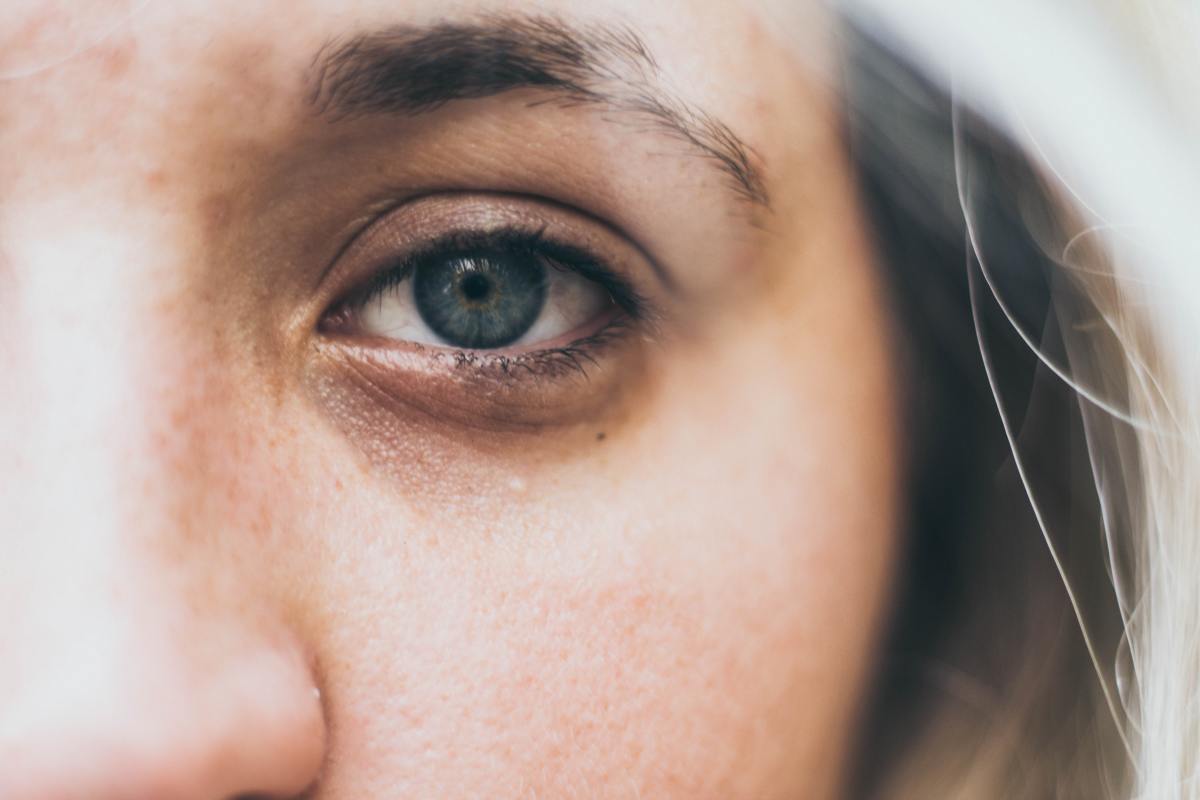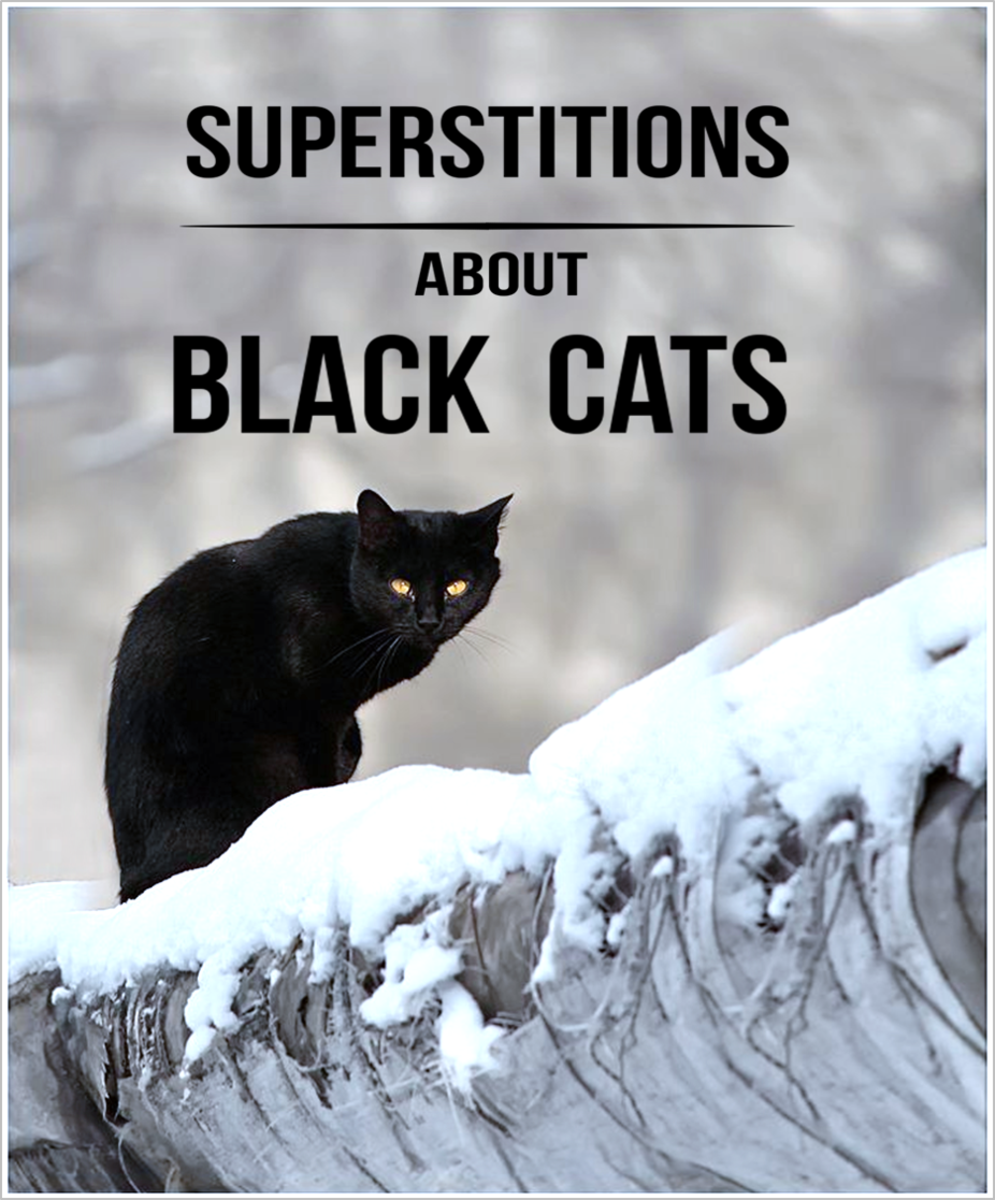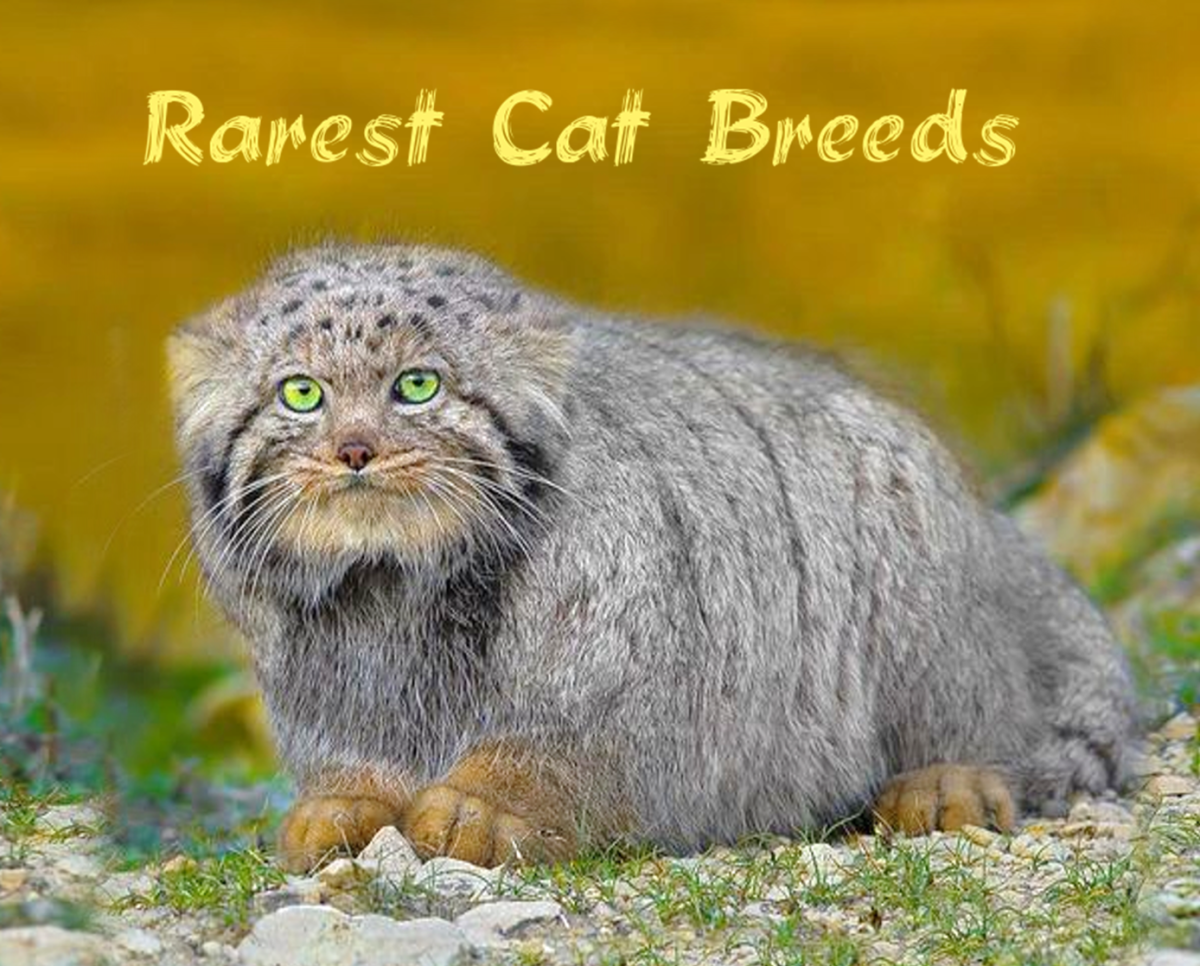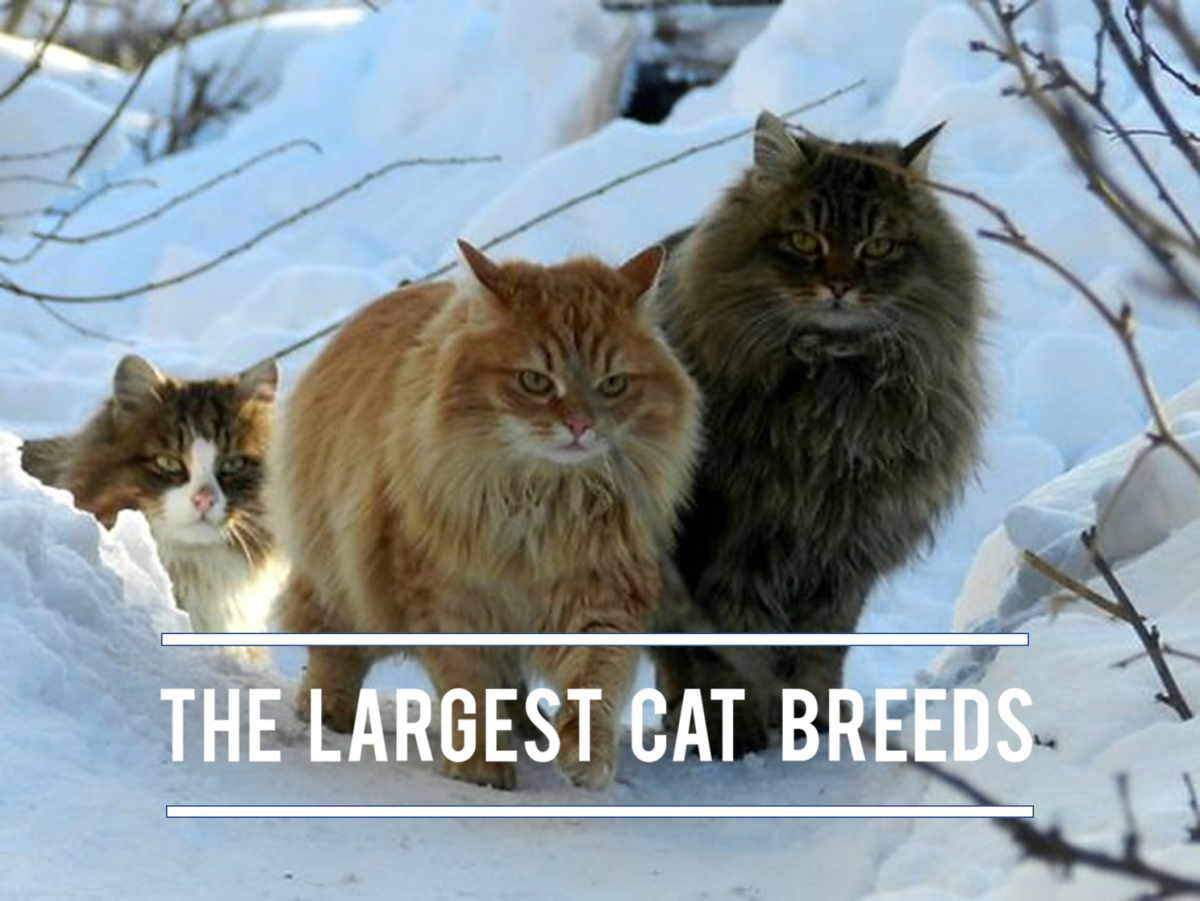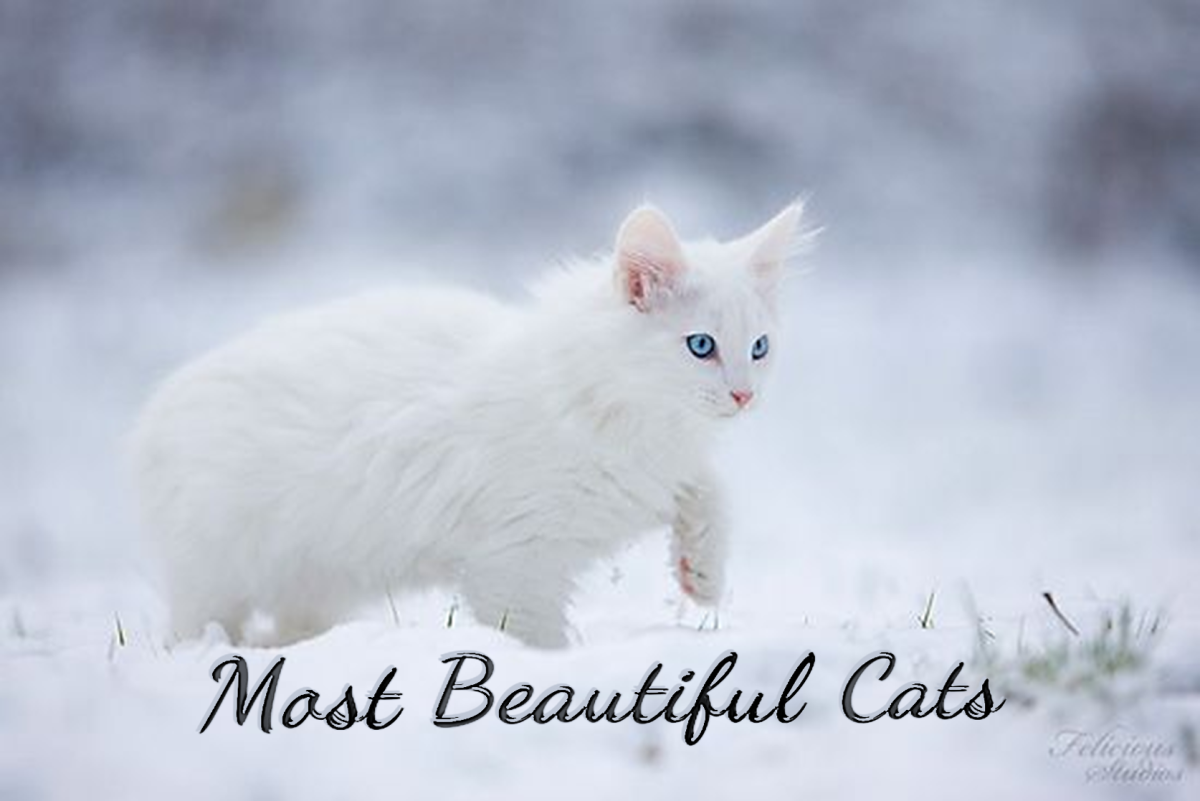Lucky or Unlucky? Black Cats, Superstition and Witchcraft
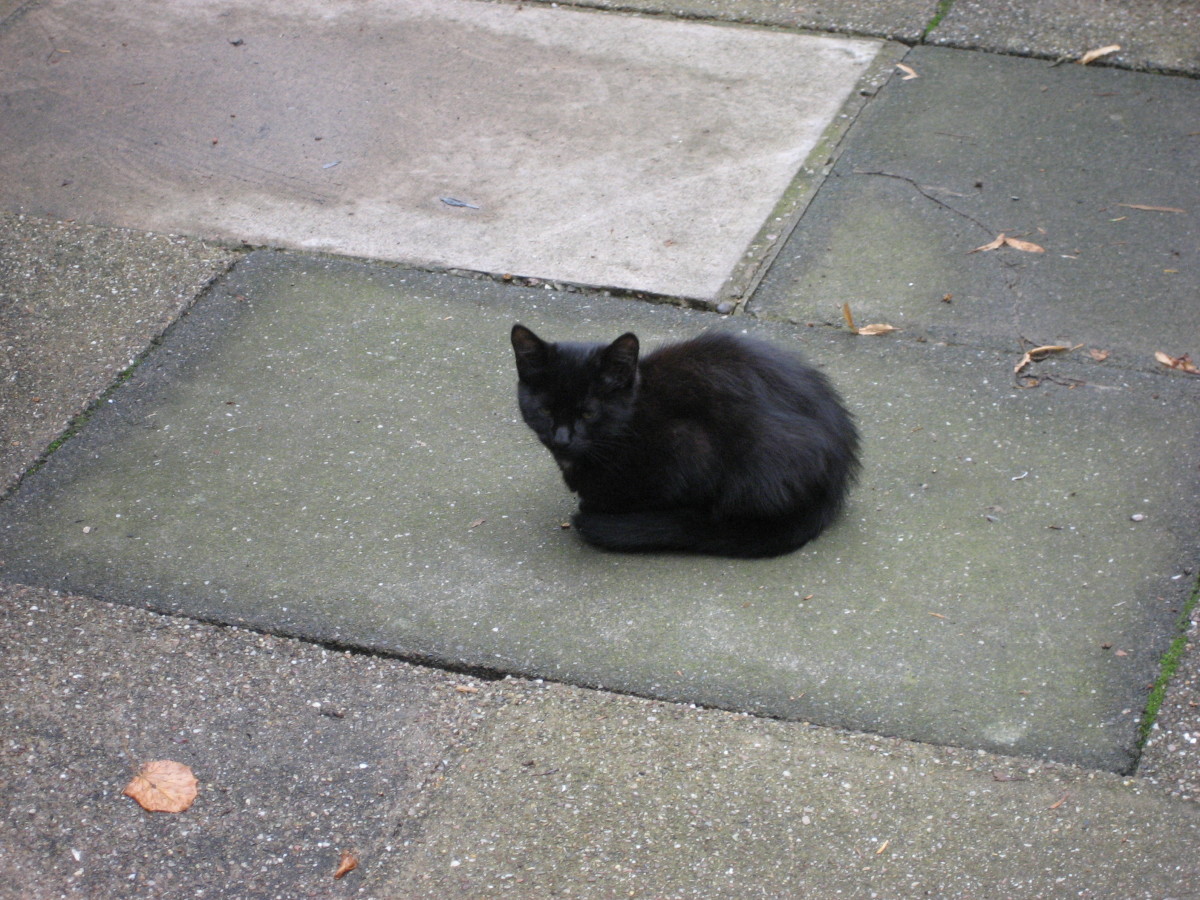
What's With Black Cats?
Cats come in all kinds of colors...including black, either solid or with white markings.
Black cats have long held a special place in human culture. Often associated with luck or witchcraft, they are still considered 'evil' and associated with Satan in many parts of the west.
However, the place of the black cat is far more complicated than that.
Why Are Black Cats Special?
The 'special' nature of black cats can be traced to ancient Egypt. In Egypt, where grain storage was vital to long term human survival, cats were considered sacred animals. They lived in granaries and temples. Prized pets were given the same funeral rights as humans and if their owners could afford it were buried in one of the world's oldest pet cemeteries in the city of Bu-Bastis. The goddess Bast or Bastet, originally portrayed as a lion, came to be seen as taking the form of a house cat.
And Bast's form was black with gold eyes. No doubt, the special status of black cats came originally out of the normal human desire to prize animals of colors different to those seen in the wild. Out of this, of course, comes the wide variety of coloration seen in all domestic animals.
Black cats, therefore, held a very special status and were associated with divinity and magic.
Black Cats in Celtic Lore
To the Celts, black cats were associated with magic...for good or ill. Fairies would often pose as cats. The Welsh believed that if you had a cat on your ship, it would know when storms were coming. Legends of housecats having secret lives and even kings are not uncommon in some parts of western Europe.
Because black cats were considered good in pre-Christian beliefs, it was inevitable that they would be demonized by the church.
Witches and Their Familiars
The Medieval church did not like black cats. A black cat was one of the forms of the Devil through most of Medieval Europe. Their owners, especially if female, would fall under suspicion of witchcraft.
Witches either had a black cat as a familiar, representing the Devil. Or, perhaps, they turned into cats (usually black) at night when they went out to do their secret and evil rites.
In Egypt, the sacred black cats had gold eyes. In Europe, the classic...and evil...image of the witches' familiar has green eyes, perhaps because they look more sinister. It's possible that witch hunts resulting in the deaths of thousands of cats contributed to the spread of the Black Plague.
In modern witchcraft and Wicca, many practitioners own cats...and prefer black ones...believing cats are particularly sensitive to the spirit world.
Lucky or Unlucky?
In the US and most of Europe, black cats are considered unlucky. This is tragic for the cats - black cats that end up in shelters stay there longer and are more likely to end up being euthanized. This is compounded by some shelters turning away potential adopters who express a preference for a black cat, believing they want it for some nefarious purpose. (Many shelters will not adopt out black cats for a couple of weeks before Halloween as it's not unknown for people to borrow one as a prop for a witch costume and then return the poor animal).
However, in strongly Celtic areas, black cats are still considered to be lucky. (To the Celts, the unlucky cat color is white - it is associated with death). Owning a black cat is considered to have a protective effect on the household and having one cross your path means it is leading evil away from you. Black cats are also considered lucky to both own and see in Japan.
Bringing Luck
As I mentioned, black cats really are unlucky - people tend not to want them. Although I would not go to a shelter and ask for one (people have been put on the adoption blacklist for it, showing that many people still believe that black cats are the familiars of evil witches, even today), if you happen to see one, consider taking it home.
Remember that in some parts of the world it is lucky to own a black cat, lucky to touch one and unlucky to turn one out of your house or chase it away - and consider bringing a black cat home. It might not bring you luck, but it will certainly make an elegant addition to your home.

